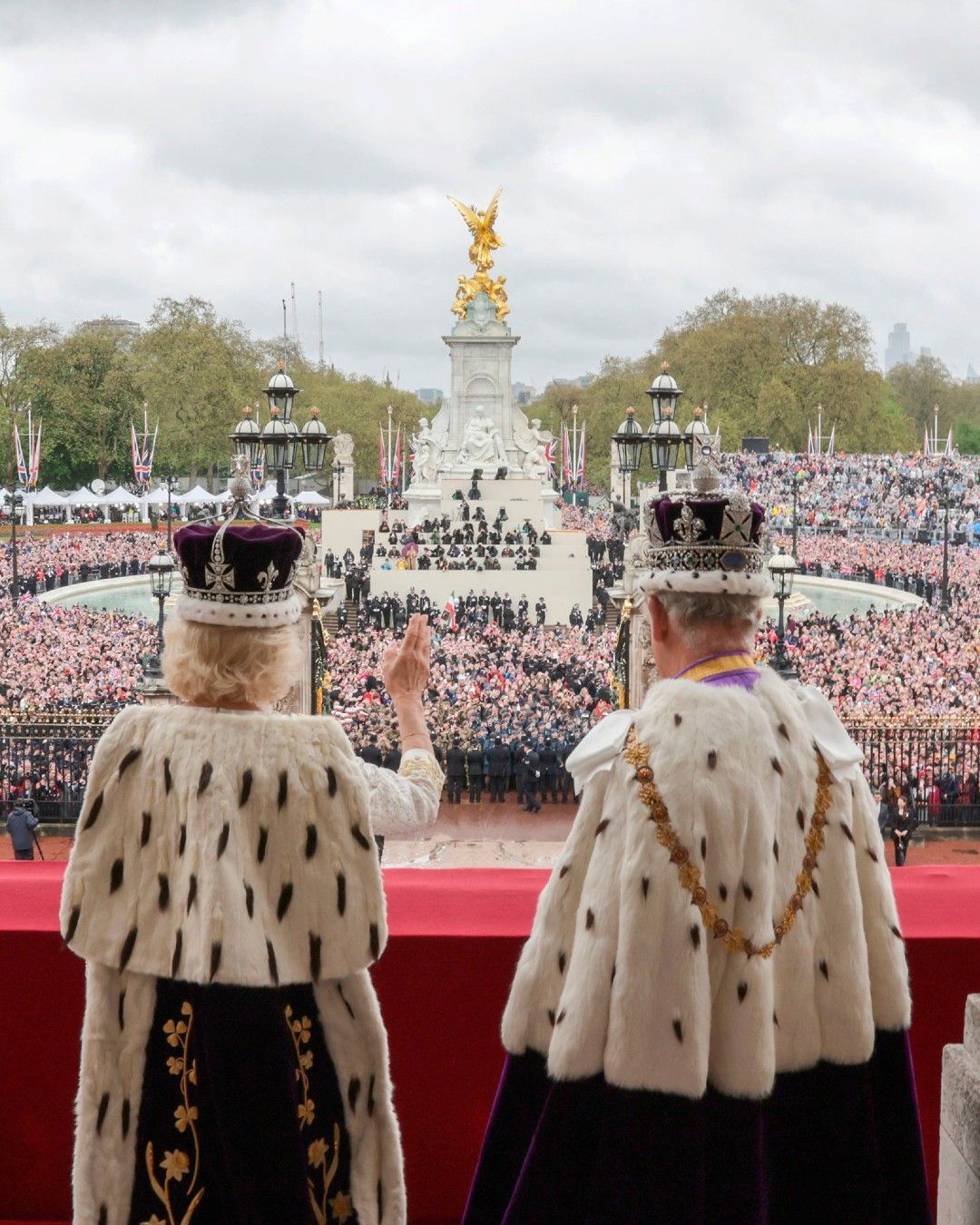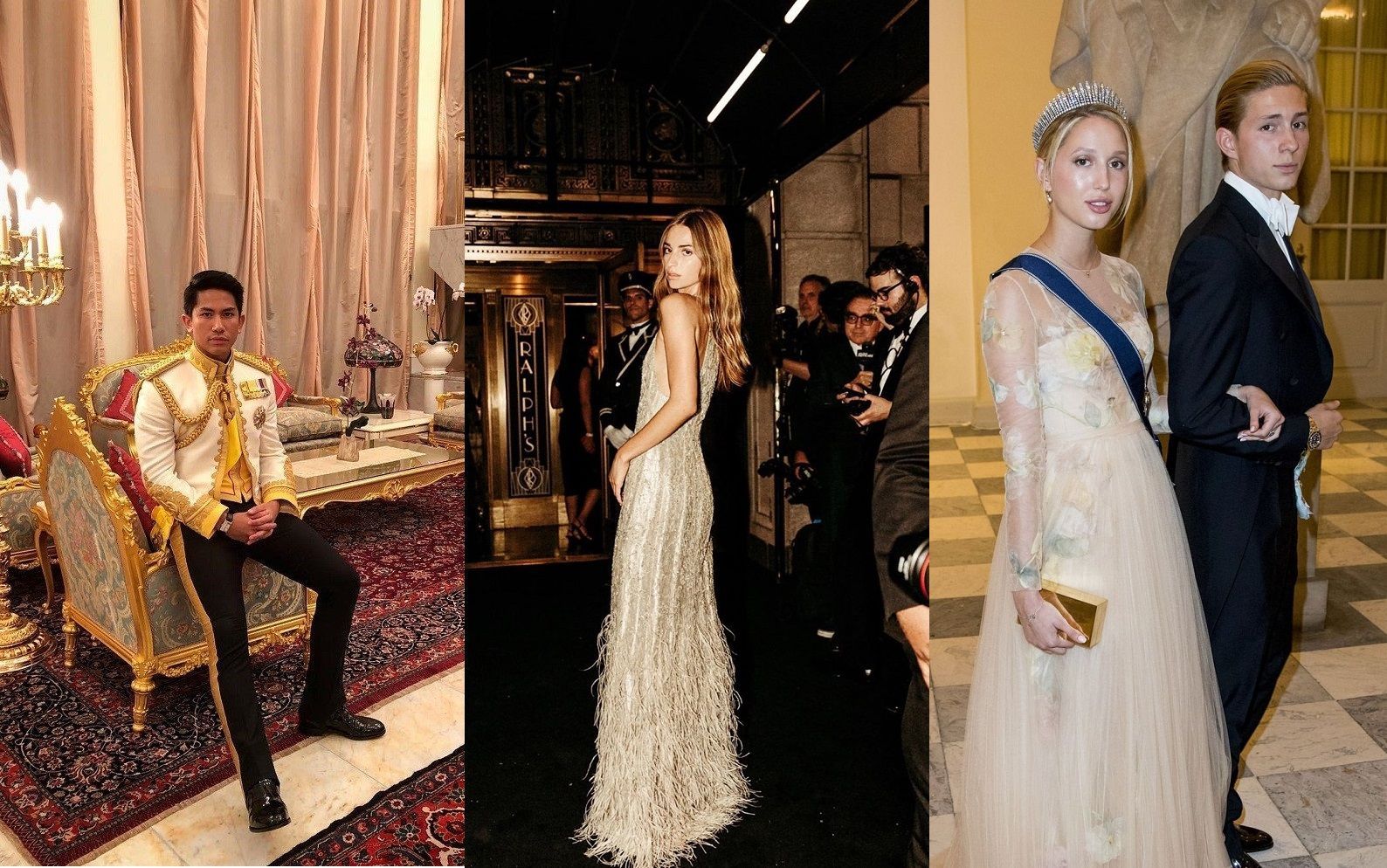
When the British royals remake "The Crown" Does life imitate Netflix?
The coronation of Charles III, which took place amidst celebrations, protests, memes and online analysis, saw the world's most famous royal family celebrate a historic ritual with a centuries-old tradition for the first time in just under a century. This historic moment highlighted the main challenge facing royals today: remaining relevant in a world that no longer believes in kings and queens, divine rights, and, in short, the entire mythological-symbolic apparatus that underlies the existence of a royal dynasty. The status of a royal family is, after all, based on the credit the rest of the world gives it - affection that must be maintained through the narrative of digital media whose job is to offer a daily glimpse into the lives of these figures. While this narrative of royals on social media has so far passed through fairly set statements and institutional photographs, lately its format has evolved. On the occasion of the coronation, for example, the Twitter account of the prince and princess of Wales shared a series of video-teasers depicting the new heirs to the throne intent on preparations for the ceremony with music, direction, and photography that seemed to borrow much of their style from The Crown, the controversial Netflix series that is effectively keeping the myth of the royals alive for a new generation of viewers. Specifically, the video depicting the family's exit from the house and their appearance among the soldiers on parade, in a carriage, with epic music in the background that really does seem to be straight out of a Netflix series creates the suspicion that the royal family has begun to employ the artifices of a filmic narrative to nullify the distance between a reality that does not recognize the royals' importance and a fictional show that instead reinforces their mystique. The same could be said of the moment when Kate looks out of the carriage, filmed in slow motion, almost lyrical in its enhancement of the gaze of the Princess of Wales.
What. A. Day.
— The Prince and Princess of Wales (@KensingtonRoyal) May 6, 2023
Thank you to everyone who made it happen #Coronation pic.twitter.com/qaYFXSjjli
Since they cannot exist in politics, the British royals must exist in entertainment and popular myth. They are like influencers if one thinks that, for example, the institution of the Royal Warrant still exists in England, which is an endorsement that the royal house gives to certain British brands helping in no small part to push their sales. And the cinematic videos depicting them on the eve of their coronation, light years away from those on their state visits or appeals to the nation, represent only the latest piece of a collective narrative that has combined their royal status with celebrity status: the royals have fans, detractors, and theorists who study their interviews just as Marvel fans study potential easter eggs and gossip about new projects. These very videos demonstrate how the parallels are complete today, as the royals themselves adopt narrative tactics borrowed from a television series about them, placing their lives in the light of a modern epic. All the stories, tabloid gossip, documentaries, and scandals serve only to increase the royals' visibility, and the coverage they receive, for better or worse, is based on the assumption that the Windsors' royal status is an objective reality, making their affairs the subject of semi-mythical narratives and justifying their existence in a self-contained manner. The royals are worthy of attention because of their importance and are important because they receive this attention.
@bbcnews "I mean, I just quite like the King." #KingCharles #Coronation #RoyalFamily #BBCNews original sound - BBC News
Not differently, for centuries, emperors and royals in history have legitimized their status through the work of poets. But if once it was civic sense that generated the myth of the royal house, through the press and traditional mass media, things are different today. Without a hit TV show like The Crown, entire generations of viewers would have already forgotten the first decades of Elizabeth II's reign, and even though the royal family officially opposes it it is this show and others like it that keep her myth alive for a disenchanted and teledependent world. Scandal and controversy are just the spice of a story that does not problematize the existence of the royals but, precisely, reconfirms it as a basic fact. By inverse, the other eleven royal houses of Europe are virtually nonexistent to the international public: no Italian would recognize the king of Spain or the prince of Belgium if he were to stand before them in civilian clothes. And this is because, visibility aside, there is no TV series that traces the events of that family making them celebrities outside national borders. The downsides, the betrayals, the baseness, may very well exist: as P.T. Barnum said two centuries ago, «there's no such thing as bad publicity», there's just publicity.
The constant presence of the British royals on the Western cultural horizon, including Meghan Markle's interviews with Oprah, Prince Harry's book, the media's continued obsession with Diana, and the existence of series such as The Crown, the soap opera The Royals, and films such as Spencer, have served over the years to substantiate and propagate a national myth that, at its base, feeds on constant publicity that has been going on since the Middle Ages. And if today the royals have to tell their stories, they do so with the realistic but aestheticizing perspective of television seriality - and thus the video of William taking the stage during the rehearsal of his speech and interrupting just before he speaks as in a cliffhanger is born, so the camera follows the royals speaking to the audience by framing them from behind the shoulder, creates symmetrical shots, employs cinematography and depth of field typical of a film. These are not the coldly demonstrative videos of princes talking and smiling at the audience shaking hands and touring businesses or subway stations, but there is an emotional narrative that associates them with characters in a film.
The Princess of Wales #Coronation pic.twitter.com/crp4MtASWp
— Princess of Wales News (@HRHPWales) May 6, 2023
The message of these videos is not only that the lives of these royals are like a movie, but that movies and series about them are almost a pale imitation of their reality - ironically, the ways to get this subliminal message across is to imitate the very series through which at least two generations of viewers have known and followed the lives of Queen Elizabeth and her descendants, trying to transfer the emotion aroused by the series onto themselves. Even the numerous memes about Prince Louis's mouthfuls and snorts of boredom, for example, only serve to entrench his presence and recognizability in the minds of billions of social users who, reposting him with the caption "Literally me," are unaware that they are paying tribute to his importance and implicitly acknowledging his royalty.









































